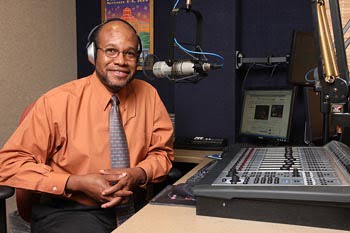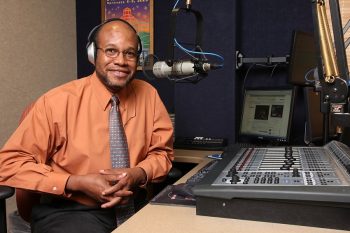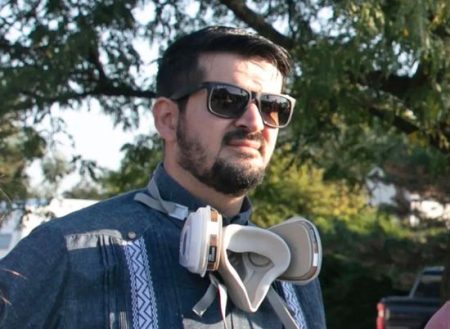Black Lives Matter

by Errington C. Thompson, MD –
In Ferguson, Missouri, Michael Brown was an unarmed black man who got into an altercation with police and died.
Trayvon Martin was walking home from a store in Sanford, Florida, when he got into an argument with George Zimmerman, the neighborhood watch coordinator, and was fatally shot. In New York, Eric Gardner was placed in a chokehold by police: his dying words were “I can’t breathe.” In North Charleston, South Carolina, Walter Scott was shot and killed by a policeman whose “adrenaline was pumping” after the incident. A few miles south in Charleston, nine black men and women were shot and killed in their church by a white supremacist.
It is possible to look at these incidents as separate and unrelated. On the other hand, if we step back, we begin to see a pattern. It appears that in the United States, the lives of blacks and Hispanics just don’t seem to matter quite as much as the lives of everyone else.
In our Declaration of Independence, it clearly asserts that “all men are created equal.” Do we really believe that’s true? The U.S. Constitution, drafted eleven years later, stated in Article I, Section 2 that slaves counted as only 3/5 of a person. So right here in our Constitution, we find that people of color don’t matter quite as much as other Americans. Even though we fought a Civil War and amended the Constitution in order to make America a fairer place, we’re still not a nation of equals (the amendment guaranteeing women Equal Rights still hasn’t been ratified 227 years later).
This brings me to Doctor Ben Carson, retired neurosurgeon and Republican presidential candidate. He was asked about the movement called Black Lives Matter. He stated, “We need to talk about what the real issues are, and not get caught up in the silliness like this matters or that matters.”
It would seem to me that the death of Tamir Rice, a 12-year-old shot by police in a park in Cleveland, OH, would not be categorized as silly. Nor are all the other deaths of innocent black men and women, or the insane number of young black males imprisoned for decades for minor drug offenses, or redlining of neighborhoods, or many other inequalities. In my opinion, inequality in the United States is a “real issue.” Let’s look at some other ones:
During the Great Recession, the official unemployment rate for blacks peaked at over 16%, while the unemployment rate for whites never rose above 10%. In 2010, the median family income for whites was over $65,000, whereas the median family income for blacks and Hispanics was approximately $40,000. That same year, according to the U.S. Census, median net worth for whites was $110,729, while that of blacks was $4,995, and of Hispanics, $7,424. In fact, even without education, a white family “with an education below high school”—dropouts—have a median net worth ($51,300) twice that of black families with college degrees ($25,900).
We all know the numbers — and the many other inequalities African American face in the U.S. According to a USA Today article, “Blacks are stopped, searched, arrested and imprisoned at higher rates than other people of other races.” I singled out Doctor Ben Carson because he should know better, as a physician and as a black man.
All Lives Matter. Men and women. Blacks and whites. Hispanics and Asians. Rich and poor. Educated and undereducated. We all matter. We all deserve respect. We all deserve the same opportunities.
I’m not saying that our society should be perfectly fair. That is impossible. But everyone should have an opportunity to be successful. This means we have to have an educational system that works for everyone. If you don’t want to take advantage of the educational system, then that’s your choice. We need a justice system that works for everyone, not one that treats some people—mostly educated whites with money and connections—more leniently than others. We need to have job opportunities that are open to everyone equally—as long as you are qualified and ready to work.
It is important for me to emphasize that All Lives Matter—including police lives. Policing is not easy. Police officers are asked to make split-second decisions under the most difficult of circumstances. For the most part, most police officers are to be commended. It is important for us to remember that in the heat of the moment, most of us often don’t make the best decisions. With adrenaline pumping through our veins, higher brain function is shut down. We rely more on our fight-or-flight reflexes and our primitive areas of the brain. Therefore, it is critically important that we allow officers time to think. We must allow those adrenaline levels to decrease. Police officers, like all of us, make better decisions when they’re calm.
Sandra Bland was a black female who was stopped by police in Texas for failing to signal a lane change. She was stopped for a traffic infraction, the detained, then arrested, and jailed with $5,000 bond—for a traffic infraction. Three days later she was found dead in her jail cell. The police story is that this optimistic young woman, who had just accepted an exciting new job at her alma mater, was so depressed she hanged herself using a plastic garbage bag.
This is the kind of incident that should not happen the United States. This the kind of incident that is heartbreaking. It is the kind of incident that forces us to remember Trayvon Martin, Michael Brown, Eric Gardner, Tamir Rice, and Walter Scott.
It is the kind of incident that makes you want to stand up and shout, “Black Lives Matter!”








